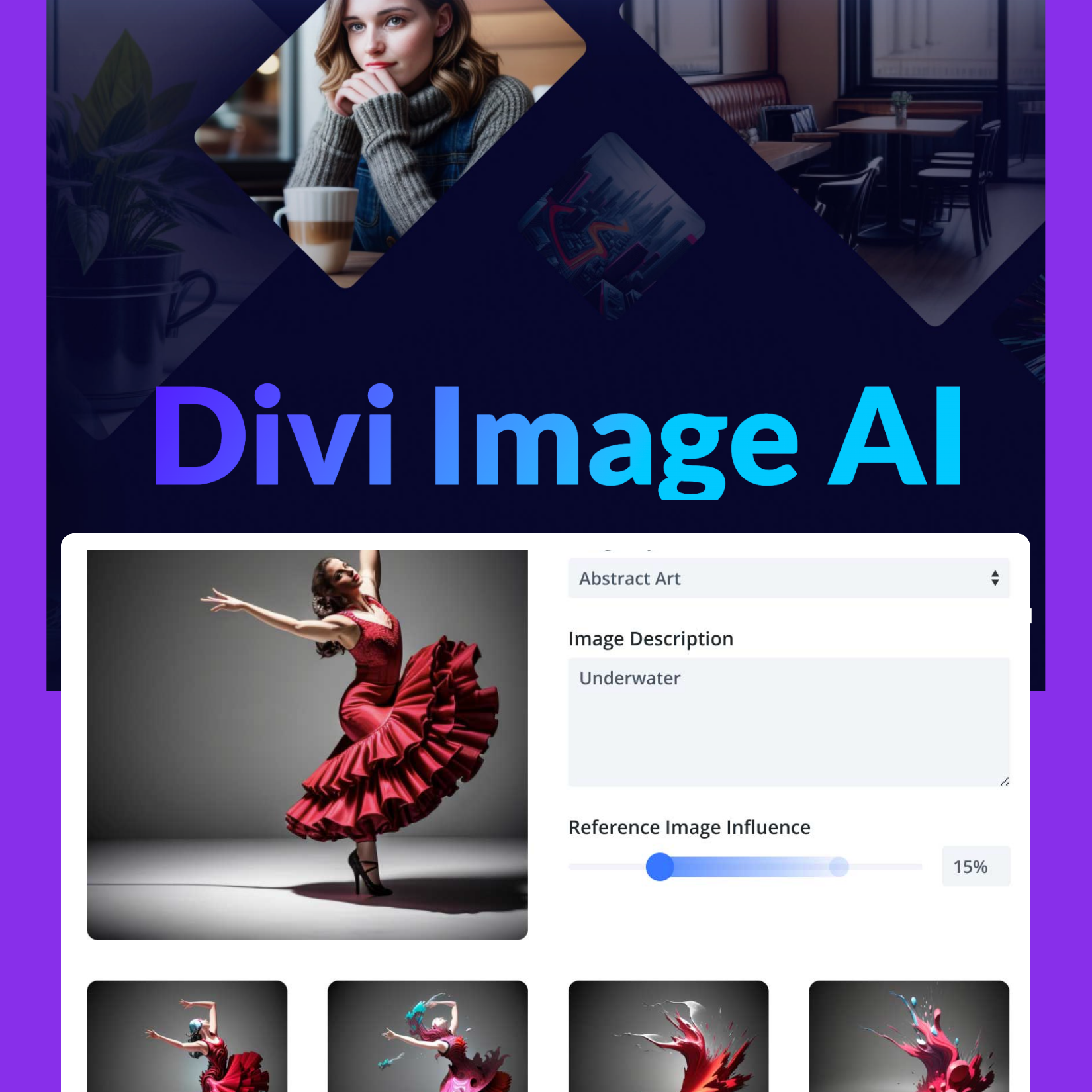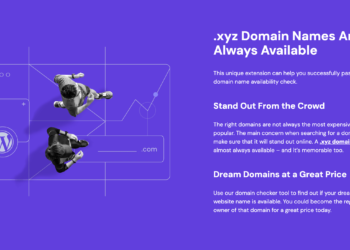1 Introduction
The world of search engine optimization (SEO) is constantly evolving, and as technology progresses, we’ve begun to see the incredible impact of artificial intelligence (AI) on the process. In this article, we’ll discuss how the potent combination of AI and powerful tools like ChatGPT can help optimize keyword usage and improve your web content’s ranking on search engine result pages.

One of the most critical factors in achieving a high ranking in search engine results is the ability to identify and implement the right keywords strategically. With ChatGPT, we have seen many digital marketers, content creators, and SEO professionals succeed in navigating the keyword landscape, delivering search-engine-friendly content with pinpoint accuracy. By harnessing AI-generated insights, we can adapt our content strategies in innovative ways, allowing for improved SEO and better audience engagement.
Key Takeaways
- AI and ChatGPT greatly enhance SEO by optimizing keyword use and content creation
- Proper keyword identification and implementation are essential for higher search engine rankings
- AI-generated insights allow for adaptive content strategies and improved audience engagement
2 Core Principles of AI SEO

Role of AI in SEO
As we venture into the world of AI, the impact on SEO becomes increasingly significant. One core principle behind leveraging AI for SEO is automating time-consuming processes. The ability to analyze large volumes of data, recognize patterns, and adapt strategies make AI a powerful tool in optimizing our search engine marketing efforts.
Another principle is the role of natural language processing (NLP) and understanding user intent. AI can help decode contextual relationships in search queries and create meaningful content for users. This improvement in content quality immensely benefits SEO rankings.
A few ways AI benefits SEO are:
- Keyword research: AI can unearth relevant keywords quickly and efficiently.
- Content generation: Creating optimized, high-quality content becomes easier with AI.
- Personalization: AI helps tailor user experiences based on their preferences.
3 Integrating GPT in SEO
Integrating generative language models like ChatGPT can revolutionize our SEO efforts. GPT, or Generative Pre-trained Transformer, has been trained on vast amounts of internet data and serves as an advanced version of AI. It’s capable of producing human-like responses and comprehending complex language structures.
With GPT models like ChatGPT, we can:
- Generate relevant, engaging, and optimized content for our websites.
- Enhance keyword research to cover a broader range of related terms.
- Validate user-generated contents and filter spam or low-quality writings.
In summary, the core principles of AI in SEO include automation, natural language processing, and user intent understanding. By integrating advanced models like ChatGPT, we can optimize our strategies and create a more personalized, relevant user experience on our websites.
4 Understanding Keywords in SEO

Importance of Keyword Research
Keyword research is a crucial aspect of search engine optimization (SEO). By identifying popular search terms relevant to our niche, we can create content that attracts organic traffic. When we know what people are searching for, we can optimize our website to satisfy their needs effectively. Here are a few reasons why keyword research is important for SEO:
- Attract the right audience: We want our website to attract visitors who are actually interested in what we have to offer. By targeting specific keywords, we can reach our desired audience and improve our chances of converting them.
- Stay ahead of the competition: Knowing the most popular keywords in our industry and strategically including them in our content can help us outrank our competitors.
- Inform our content strategy: Once we’ve identified the relevant keywords, we can create high-quality content that appeals to our audience and addresses their needs.
5 Identifying Relevant Keywords
Finding the right keywords for our content is crucial for its success. Here’s how we can identify relevant keywords for our website:
- Brainstorm keywords: Start by brainstorming a list of terms related to our niche or industry. Think about what our target audience might search for to find our content.
- Use keyword research tools: There are several tools available that can help us generate keyword ideas. These tools also provide valuable data, such as search volume and competition, to help us make informed decisions.
- Analyze competitors: By examining our competitors’ websites and content, we can uncover the keywords they’re targeting. This allows us to find new keyword opportunities and adjust our strategy accordingly.
- Consider search intent: It’s essential to understand the intent behind a search query. Identifying whether users are searching for information, products, or services can guide our content creation process and optimize our pages to match user intent.
In summary, keywords are an integral part of SEO success. By conducting thorough keyword research, we can identify relevant terms to target, optimize our website, and ultimately rank higher in search engines.
6 Importance of Optimization

7 Role of Optimization in Ranking
Optimization plays a crucial role in our website’s ranking on search engines like Google. By optimizing our content, we can improve visibility, allowing our pages to appear higher in search results. A well-optimized site helps search engines understand our content better, increasing the chance of ranking for relevant keywords.
To better illustrate how optimization contributes to improved ranking, let’s consider a few key areas:
- Keyword research: By targeting our content around relevant and high-volume keywords, we can drive more organic traffic to our website and improve our search rankings.
- On-page optimization: This not only includes placing keywords strategically in our title tags, meta descriptions, and headings, but also optimizing images and other media on our site.
- Site architecture: A clear and accessible site structure helps search engines crawl and index our content efficiently, resulting in better rankings.
8 Insight into Technical SEO
Technical SEO is an essential component of optimization that ensures our website is easily accessible and understood by both users and search engines. By addressing technical aspects, we can enhance our site’s crawlability, indexability, and overall performance. Here are some critical areas to focus on:
- Mobile-friendliness: With the increase in mobile searches, it is crucial to have a mobile-friendly design that maintains functionality and usability across devices.
- Site speed: Faster sites offer a better user experience and are favored by search engines. We can achieve this by optimizing images, using a content delivery network (CDN), and implementing caching techniques.
- Secure connection (HTTPS): Migrating our site to HTTPS not only provides a secure user experience but also contributes to better search rankings, as security is a priority for search engines.
- Indexability: Ensuring our pages can be crawled and indexed effectively is vital for successful ranking. By submitting sitemaps, using canonical tags, and avoiding duplicate content, we can improve our site’s indexability.
Focusing on optimization can significantly boost our website’s search engine ranking and visibility. By combining well-thought-out content with sound technical SEO, we can offer users a great experience and gain an edge in the highly competitive digital landscape.
9 ChatGPT and Content Strategy

Why Use ChatGPT in Content Creation
ChatGPT is a powerful, AI-driven language model developed by OpenAI that has significantly impacted the field of content creation. This AI chatbot is an exceptional tool for content strategy since it can not only streamline tasks such as keyword research but also assist in content generation, leading to improved SEO rankings.
One of the many benefits of using ChatGPT in content creation is its ability to generate related keywords. Identifying the right keywords is crucial for optimizing content and attracting organic traffic. With ChatGPT, we can easily discover:
- Primary keywords: Main focus phrases for the content
- Italicized secondary keywords: Supplementary phrases that complement the primary keywords
- Long-tail keywords: Longer and more specific phrases that may have lower search volume but higher conversion rates
Besides keyword generation, ChatGPT’s prowess in natural language processing enables it to create high-quality, engaging, and coherent content. Here are some of the tasks we can accomplish using ChatGPT:
- Content ideation: Generate novel ideas for blog posts, articles or social media updates
- Content optimization: Improve existing content, making it more engaging and reader-friendly
- Answering FAQs: Provide relevant and concise answers to frequently asked questions
- Creating outlines: Develop structured and comprehensive frameworks for content pieces
10 Exploring OpenAI
OpenAI is the organization responsible for creating the cutting-edge ChatGPT. The company has been continuously working on enhancing its capabilities, resulting in increasingly powerful large language models such as GPT-3.5 and GPT-4. With the growth of OpenAI’s technology, we can expect even more advanced features that will revolutionize content strategy and SEO optimization.
As part of our content strategy, staying updated with OpenAI’s advancements is essential. We should engage with the AI community, participate in discussions, and follow industry experts to uncover the latest tips and tactics to fully leverage ChatGPT in our content creation process.
In conclusion, incorporating ChatGPT in our content strategy empowers us to optimize content more effectively, improve SEO rankings, and reach wider audiences, all while simplifying our workload. As OpenAI continues to innovate, we need to stay informed to make the most of the ever-evolving potential of ChatGPT.
11 Effects of Search Intent & Audience Targeting

Defining Search Intent
Search intent is the primary goal a user has when entering a query into a search engine. Understanding and optimizing for search intent is crucial for an effective SEO strategy. There are typically four types of search intent:
- Informational: The user is looking for specific information or answers to a question.
- Navigational: The user wants to find a specific website or page.
- Transactional: The user wants to make a purchase or complete a specific action.
- Commercial Investigation: The user is researching and comparing products or services to make a decision.
By targeting and catering to these intents, we can create content that better aligns with user needs, improving our search rankings and driving higher quality traffic.
12 Knowing Your Target Audience
Understanding your target audience is essential for crafting content with the right search intent. To better know your audience, we can conduct research and analyze data through:
- Surveys: Gather insights directly from your audience using questionnaires.
- Analytics Tools: Analyze user behavior on your website with tools like Google Analytics.
- Customer Support: Listen to feedback from customer service interactions.
- Social Media: Monitor your audience’s comments and interactions on social platforms.
By understanding the needs, preferences, and behaviors of your target audience, we can create content that better resonates with them and more effectively addresses their search intent. This will ultimately lead to better user engagement, improved SEO performance, and higher search rankings.
Incorporating both search intent and audience targeting into our SEO strategies helps us drive more relevant, quality traffic to our website. By addressing the specific needs and preferences of our audience, we can create content that caters to their searches and keeps them engaged throughout their journey on our site. This, in turn, increases our chances of ranking higher on search results pages and achieving our digital marketing goals.
13 Mastering SEO Tools

Utilizing Google Search Console
We’ve come across numerous SEO tools that can help us achieve higher search engine ranks. One of our favorites is Google Search Console. It’s a free, user-friendly tool directly from Google that offers invaluable insights into our website’s performance.
With Google Search Console, we can:
- Monitor our site’s search performance
- Identify and fix technical issues
- Find the keywords that are driving traffic to our site
- Submit sitemaps and individual URLs for crawling
Moreover, it helps us understand how Google “sees” our site, enabling us to optimize its content and structure accordingly.
Exploring SEMRush and Ahrefs
Another two powerful and popular SEO tools in our arsenal are SEMRush and Ahrefs. Both of these tools aid in formulating data-driven SEO strategies by providing comprehensive insights and analysis. Here is a brief comparison of both tools:
| Feature | SEMRush | Ahrefs |
|---|---|---|
| Keyword Research | ✔️ | ✔️ |
| Backlink Analysis | ✔️ | ✔️ |
| Site Audit | ✔️ | ✔️ |
| Rank Tracking | ✔️ | ✔️ |
| Content Marketing | ✔️ | ❌ |
| Advertising Research | ✔️ | ❌ |
SEMRush excels in its ability to analyze competitor strategies, including advertising research and content marketing. Ahrefs, on the other hand, has a slightly better backlink index and is renowned for its extensive website analysis.
Integrating AI-powered SEO tools like ChatGPT into our SEO workflow can also offer a range of benefits, from generating structured data to providing keyword ideas. Our experience with ChatGPT has shown how AI can save us time while producing quality SEO content.
In summary, mastering these SEO tools is essential to stay ahead of the competition. Google Search Console, SEMRush, and Ahrefs, when combined with AI like ChatGPT, will provide us with a robust SEO strategy that optimizes our online presence and rankings.
14 Building Links and Social Media Outreach

Basics of Link Building
Link building is the process of acquiring quality backlinks from other websites to improve the visibility and authority of our own site. A good link-building strategy is essential for SEO success. Here are a few steps we can follow to create a strong link building foundation:
- Content creation: We want to create high-quality and shareable content to attract links from other websites. This could be blog posts, infographics, videos, or even interactive tools.
- Keyword research: Identifying relevant and high-value keywords will help us tailor our content to target specific audiences and improve search engine rankings.
- Competitor analysis: We should analyze our competitors’ backlink profiles to find potential link opportunities and see where their links are coming from.
In addition to these steps, we can also utilize social media platforms to share our content and promote our website.
15 Creating Effective Outreach Emails
Outreach emails are an essential part of any link-building strategy, as they help establish connections with other website owners or influencers in our niche. Here are some tips for crafting compelling outreach emails:
- Personalize the email: Address the recipient by name and demonstrate that we’ve taken the time to research their interests and content.
- Offer value: Explain how linking to our content will benefit their audience and provide them with valuable information.
- Keep it brief and concise: Ensure our email gets to the point quickly, as busy website owners and influencers appreciate brevity.
- Proofread: Double-check for grammar and spelling errors to maintain professionalism.
By investing time and effort in our social media presence and creating well-crafted outreach emails, we can build a robust link-building strategy that benefits our website’s SEO performance, ultimately improving our search engine rankings and traffic.
16 Conclusion

We’ve explored the fascinating intersection of AI, SEO, and keyword optimization in the world of digital marketing. With tools like ChatGPT, it’s clear that technology is revolutionizing the way we approach SEO and rank higher on search engines.
Our journey revealed that incorporating AI in our SEO strategy can enhance keyword research and streamline content creation. By leveraging ChatGPT’s natural language processing capabilities, we can unlock new insights for tailoring our targeted keywords even more effectively. This, in turn, bolsters the ranking potential of our online content.
As we continue to embrace innovation, don’t forget the essentials of good SEO practice. While AI can assist us with tasks, here’s a quick refresher on some best practices:
- Consistent content: Keep your website fresh with frequent updates and relevant posts.
- Quality over quantity: Focus on producing well-researched, engaging articles that provide value to your readers.
- On-page optimization: Ensure that your website follows on-page SEO guidelines, like using header tags, descriptive meta tags, and optimized URLs.
Finally, let’s remember that although AI tools like ChatGPT can be incredibly powerful, they are best utilized as an extension of our efforts. Working in tandem with human creativity and expertise, we can harness AI’s potential to enhance our SEO tactics and reach new heights in the digital landscape.
17 Frequently Asked Questions
1. How does ChatGPT help in SEO optimization?
ChatGPT can significantly contribute to SEO optimization by assisting in various tasks such as keyword research, content creation, and meta tag generation. By utilizing its advanced natural language processing capabilities, it can provide relevant and engaging content suggestions that appeal to both users and search engines.
2. Can ChatGPT effectively generate SEO-focused content?
Yes, ChatGPT can generate SEO-focused content by using its deep understanding of language and context. By giving it specific prompts related to your target keywords, it can produce content that not only relates to the topic but also maintains keyword density and optimization requirements. However, it’s essential to review and refine the generated content to ensure quality and adherence to your SEO goals.
3. Is it possible to replace traditional SEO with ChatGPT?
While ChatGPT is a powerful tool, it cannot replace traditional SEO practices entirely. It’s essential to use a combination of AI tools like ChatGPT and conventional SEO techniques to achieve the best results. ChatGPT can aid in optimizing your content and research tasks, but it’s crucial to still rely on your expertise and established SEO strategies.
4. How can I use ChatGPT to identify the best keywords for my website?
To use ChatGPT for keyword identification, you can provide prompts such as “Identify 10 SEO keywords related to [topic].” The AI will then generate a list of keywords relevant to your niche. To ensure these keywords are worth targeting, you need to examine their search volume, competition, and relevance using an SEO tool like Semrush or Ahrefs.
5. What is the role of AI in improving website ranking?
AI can play a significant role in enhancing website ranking by automating time-consuming tasks like keyword research, content optimization, and analyzing user behavior. This enables SEO professionals to focus on other aspects of their strategy, such as link building, technical optimization, and user experience. AI-generated insights can help identify optimization opportunities and trends, making it easier to prioritize and adapt strategies for better rankings.
6. Are there any Chrome extensions using ChatGPT for SEO purposes?
Currently, there may not be specific Chrome extensions using ChatGPT for SEO purposes. However, many extensions use AI-driven technologies to help with SEO tasks such as keyword analysis, backlink evaluation, and on-page optimization. As ChatGPT and similar AI technologies continue to develop, we can anticipate the integration of these tools into future browser extensions to assist in achieving SEO goals.














